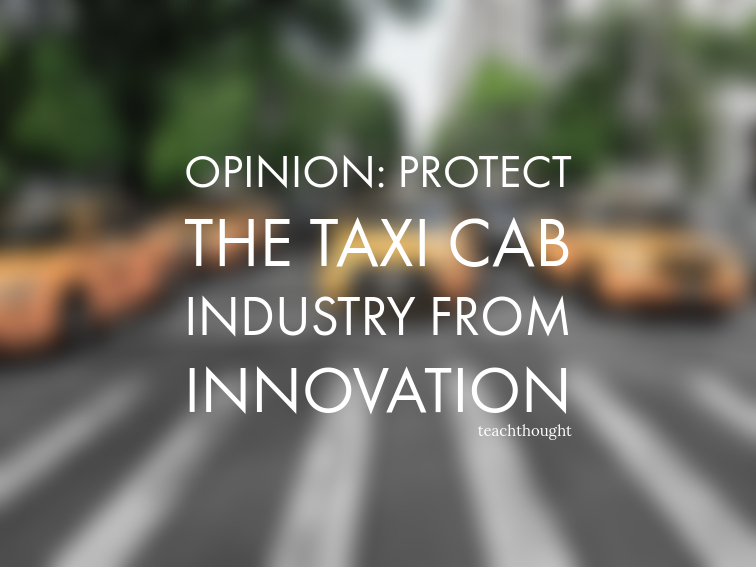
Opinion: Protect The Taxi Cab Industry From Innovation
by Terry Heick
We have to protect the taxicab industry from disruptive innovation.
After a century of dominance in the moving-very-small-groups-of-people-around-a-city market, outside forces have disrupted cabs as the de facto method for people-moving. From automotive manufacturers who manufacture fleet-friendly automobiles often used as cabs to the cab drivers themselves–even cab-hailing methods on city streets and in airports have changed.
New market forces are shaping the need and demand for taxi cabs, including generational changes in driving habits, emissions regulations in the face of global warming (and the subsequent advent of electric and driverless cars), and most acutely, the rise in prominence of ride services like Lyft and Uber.
Taxi cabs have been a part of global post-industrial culture since Gottlieb Daimler invented the Daimler Victoria, the world’s first gasoline-powered taximeter-cab—and began operating in 1897 in Stuttgart, Germany. In the nearly 125 years since, cabs have become embedded in our cultural landscape. Movies, music, David Letterman, Saturday Night Live intros, television series starring Danny Devito–even the iconic color of taxi cabs all summon considerable nostalgia.
For decades, innovation in the taxi industry was at a relative standstill, but the threat Lyft and Uber and driverless cars are all forcing the industry to take a good, hard look at itself. But in spite of best efforts, many cab companies are languishing, drivers are frustrated, and automotive fleet manufacturers are getting antsy.
One day, we’ll have to protect Lyft and Uber, too. But for now, let’s make sure we cherish and celebrate, and support these iconic symbols of urban transportation. Cab drivers must be guaranteed our patronization rather than retrained as Uber drivers or app developers or electric bicycle designers or even as would-be CEOs or start-ups who might create their own alternative to cabs and Lyft and Uber.
While people are being moved around cities more cheaply and efficiently than ever, we have to consider the effects of these innovations and protect the dated but cherished infrastructure we depended on for so long.
Opinion: Protect The Taxi Cab Industry From Innovation